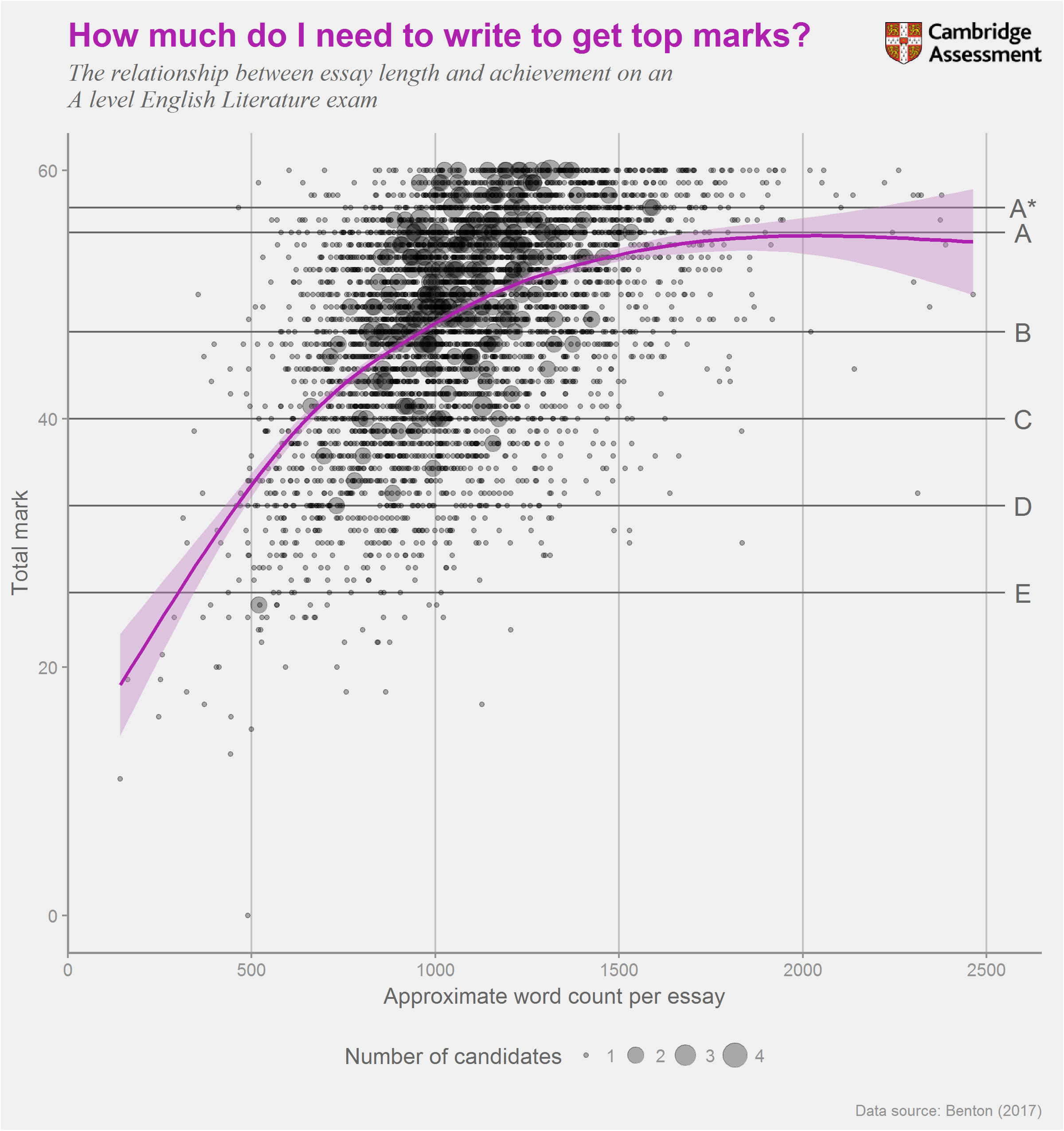January 2018
Summary
Earlier this month we looked at the relationship between the length of candidates' essays and the grade they were awarded in a GCSE English literature exam.
In this Data Byte we extend that research by investigating the same relationship, but in an A level English literature exam.

What does the chart show?
The chart shows the association between the approximate word count of candidates' responses per question and the number of marks awarded on the exam overall. The purple line shows how the average number of marks (out of 60) varied with the amount of writing. The purple shaded area is the 95% confidence interval around the average. The horizontal lines indicate the grade boundaries on the exam.
The data are from an Advanced GCE unit exam sat in June 2016. The lowest grade achievable in the exam above a U was grade E. The duration of the exam was 2 hours, and in this time candidates were required to supply two essay responses, each of which could be awarded a maximum of 30 marks. The word counts were collected by computer processing digital images of a sample of 5010 handwritten scripts. The total word count was halved to give the estimated word count per essay.
Why is the chart interesting?
The chart is similar to that obtained from the analysis of GCSE answers. Again there is a clear relationship between how much candidates wrote and the grade they were awarded. The strength of the relationship is consistent with that in the GCSE data (the correlation between word count and marks is 0.46 for the GCSE data and 0.47 for the A level data).
In the GCSE exam, candidates wrote at around 13 words per minute on average, equating to roughly 800 words per hour. In the A level exam the average student wrote at just over 1,000 words per hour. This difference is to be expected as only the strongest candidates at GCSE, who tend to write more, will go on to take A level. Additionally, A level candidates will be two years older and have more experience in writing exams.
As with the GCSE analysis, quantity does not trump quality. The curve flattens off at around 1,300 words per essay, and so writing more than this isn't consistently associated with getting higher marks.
There are examples of candidates achieving full marks with fairly succinct answers, and of very long responses resulting in a low grade. For example, inspection of several individual scripts revealed cases where candidates had achieved an A* with two essays that were each just over three pages long. At the other end of the spectrum, one candidate filled the entire length of their 11 page standard answer booklet, and four further extension booklets (each allowing four pages of writing) but ended up being awarded grade E.
Although these results are consistent with our previous research, this work is based on only two exams and so we should be cautious in drawing conclusions beyond these studies.
Further information
Our first Data Byte on the GCSE exam - How much do I need to write to get top marks at GCSE?
Further background to the work and details of the methods used to collect and analyse the data can be found in:
Benton, T. (2017). How much do I need to write to get top marks? Research Matters: A Cambridge Assessment Publication, 24, 37-40.